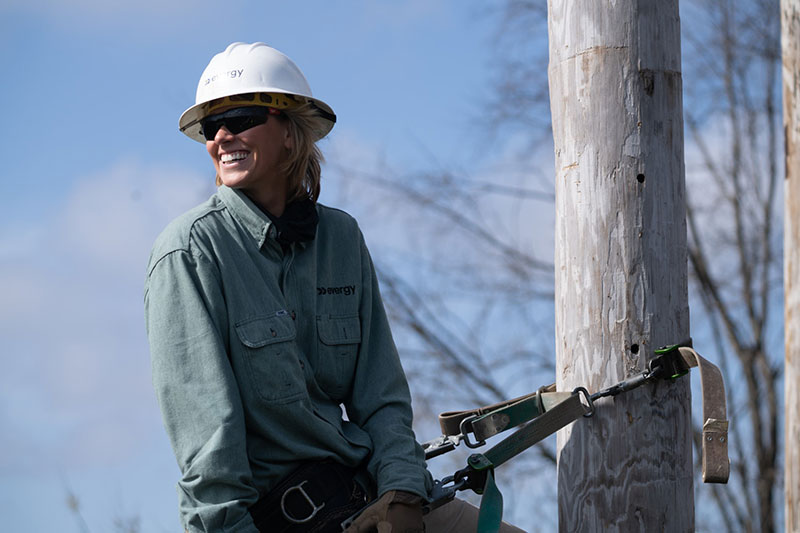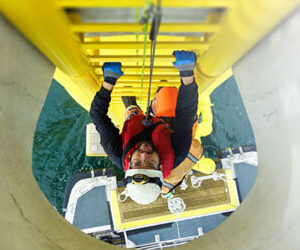When Paige Spietz went to work at electric utility Evergy, she joined the likes of Elvis Presley, Leonardo da Vinci, Henry Ford, and Benjamin Franklin. They all started out as apprentices.
Maybe you should, too.
 The energy industry has thousands of apprenticeship opportunities available each year in dozens of trades and professions. According to the U.S. Labor Department, apprenticeships in all fields have increased by more than 70 percent since 2011. And, the Labor Department found that those in apprenticeship trades often earn well above the wages for typical workers.
The energy industry has thousands of apprenticeship opportunities available each year in dozens of trades and professions. According to the U.S. Labor Department, apprenticeships in all fields have increased by more than 70 percent since 2011. And, the Labor Department found that those in apprenticeship trades often earn well above the wages for typical workers.
Energy apprentice careers range from electric line workers – such as Spietz – and natural gas pipefitters to engineering technicians and wind turbine technicians.
Often dubbed a way to “earn as you learn,” apprentices get hands-on training, classroom instruction and a paycheck all at the same time. Some apprenticeship programs require specific skills or training in advance. For others, candidates need no more than a high school diploma or equivalent, the right aptitude and a good attitude. The hiring process is much like any other job, starting with an application and doing interviews.
Apprenticeships are operated either by an employer or through a business/union partnership. They can last from one to six years, with the average three to four. Apprentices enjoy regular pay increases as they progress on their way to becoming a fully qualified “journeyman.”
“It is different from high school or college,” Spietz said. “It’s your job. You’re making a paycheck. It’s a lot more appealing to me. With an apprenticeship, you just jump right on in. They’re paying you and they’re teaching you. You don’t have to take out loans.”
Spietz is more than halfway through a four-year apprenticeship to become a journeyman lineman for Evergy, which serves 1.6 million customers in Kansas and Missouri. A typical day starts at 7:30 a.m., when she joins her crew. She does much of the same work as her crewmates – climbing poles, repairing downed lines and the like – but always under the watchful eye of senior crew members and supervisors. And, like her crewmates, she is a member of IBEW Local 1464.
“I am a busy person,” she said. “This keeps me fulfilled, mentally and physically. We don’t sit around much.”
A one-time all-state high school basketball player in Illinois, Spietz expected to make the game her life. She played a total of four years of college ball at the University of Missouri and the University of San Francisco. However, she passed up a chance to play professionally internationally to put her environmental science degree to use. A tour as an arborist with a consulting company put her in the field with utility line crews. She was hooked and a stint a community college “lineman school” confirmed it.
She loves the comradery, the sense of accomplishment and the intense focus on one goal, in this case “getting everybody’s lights back on.”
“I loved playing basketball,” she said. “But sometimes I think, ‘Why didn’t I do this sooner?’“
As is the case with Spietz, many apprentices are not fresh out of school. Her apprenticeship cohort at Evergy ranges in age from 18 to 31, and she said she knows of apprentices in their 50s.
As for those “other” apprentices, da Vinci was an apprentice painter before painting the Mona Lisa, Ford used his knowledge from being an apprentice machinist to help him found the Ford Motor Company, and Franklin was an apprentice printer before penning Poor Richard’s Almanack.
And Elvis? He was an apprentice electrician until his singing career took off. Lighting up an audience just came naturally to him.




